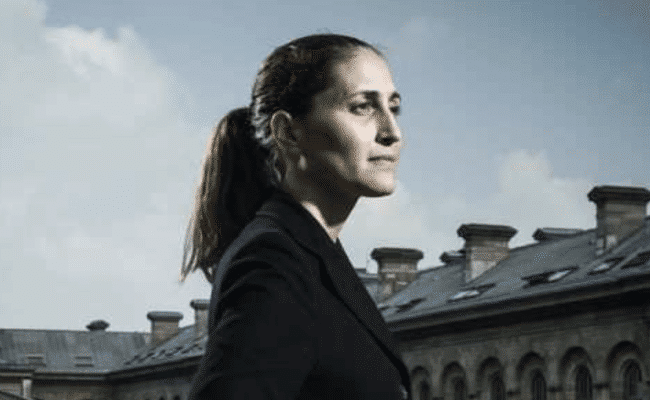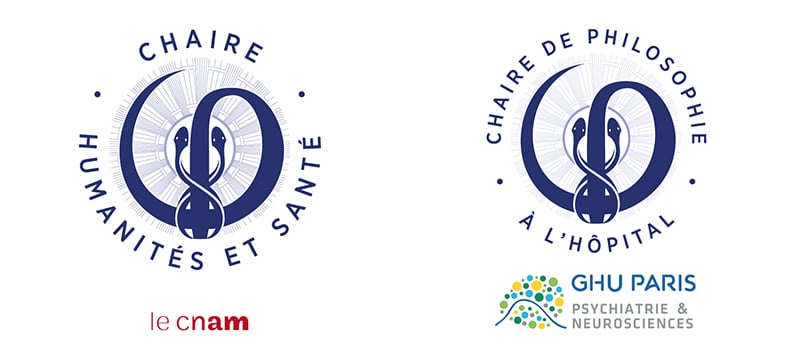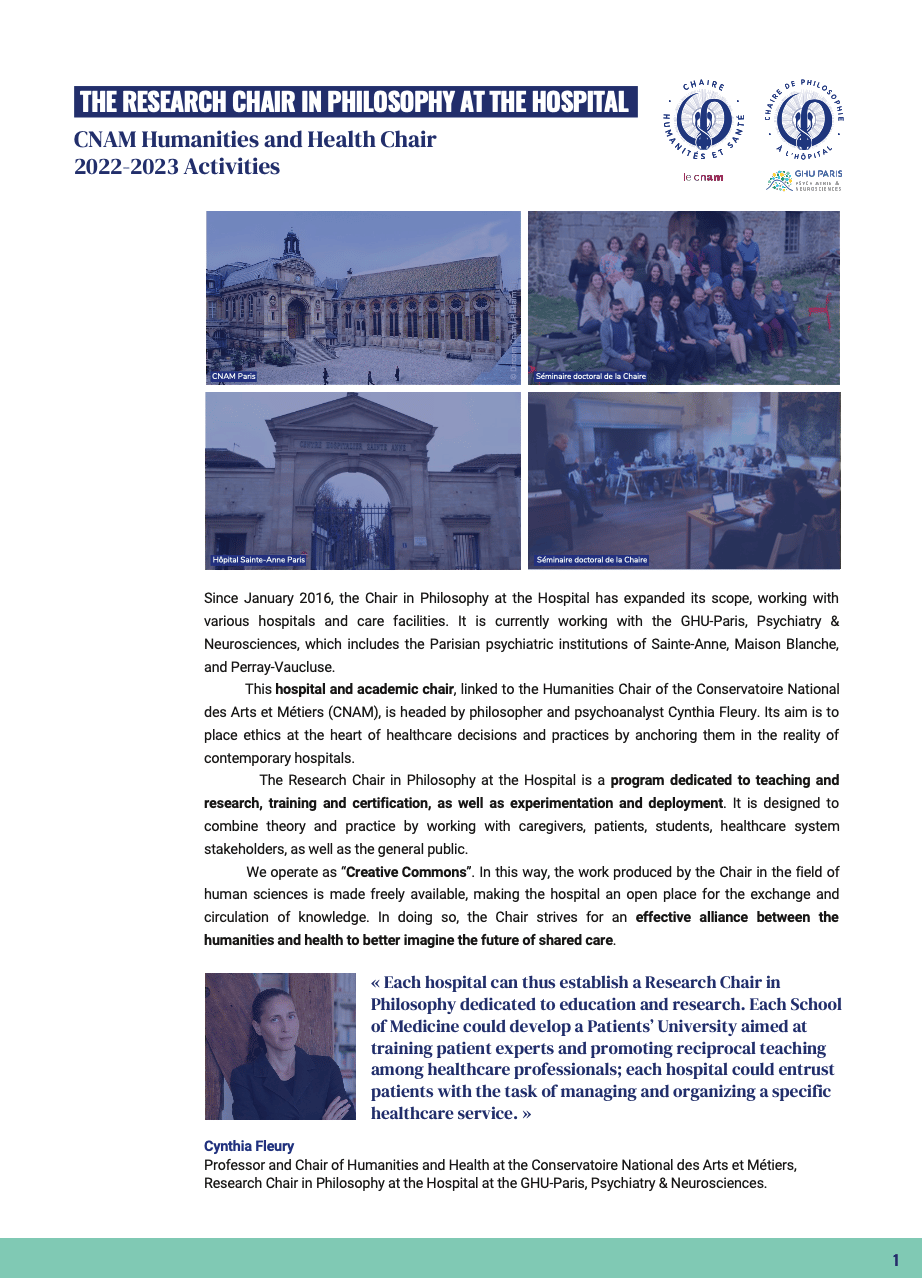
« Each hospital can thus establish a Research Chair in Philosophy dedicated to education and research. Each School of Medicine could develop a Patients’ University, which could train patient-experts and promote reciprocal teaching among health care professionals; each hospital could entrust patients with the task of managing and organising a health care service. »
Cynthia Fleury, Professor of Philosophy and Psychoanalyst.
Since its creation in January 2016 at the Hôtel-Dieu hospital in Paris, the Research Chair in Philosophy at the hospital has expanded its scope, working with various hospital and care facilities, and is currently working with the GHU-Paris, Psychiatry and Neurosciences (Sainte-Anne, Maison Blanche, Perray-Vaucluse). It is part of an even broader programme of research, teaching and experimentation, as it also includes the Université des patients (Patients’ University) (founded and directed by Professor Catherine Tourette-Turgis, from the Sorbonne University and La Pitié-Salpêtrière Hospital), various partnerships (see ecosystem) and implementation of POC (particularly with LesSismo).
The Research Chair in Philosophy and the Patients’ University work as a “creative commons”, sharing their research to better imagine the future of shared care and the fruitful marriage of Health and the Humanities. Each hospital can thus establish a Research Chair in Philosophy (here used in the more general sense, relating to the humanities and social sciences) dedicated both to the initial and continuing education of health professionals and to research. Each School of Medicine could develop a Patients’ University, which could train patient-experts and promote reciprocal teaching among health care professionals; each hospital could entrust patients with the task of managing and organising a specific health care service with organisational oversight and alternative care.
What is the aim of these various socio-therapeutic experiments? To address the ever-changing challenges of inventing new paradigms of solidarity. Through they are often beset by a scarcity of resources, they are also renewed through their use, fed by the contributions of citizens, patient experts, industry players, and scientists, all within a connected health framework.
The hospital occupies the space-time of singularity: birth, illness, accidents, suicides, death. And yet no other institution puts so much emphasis on the commodification of the being and the trials it suffers. It’s not a question of stigmatising the medical profession. It’s simply a question of turning the hospital into the living space, one of contemplation, mutual assistance, and transience, that it fundamentally is. It must become an open space, a space for thought and experimentation, circulation and an exchange of ideas: a public space for citizens and scientists.

